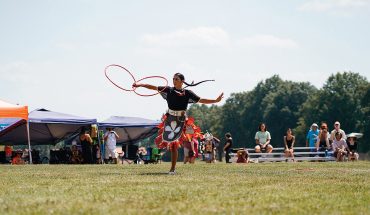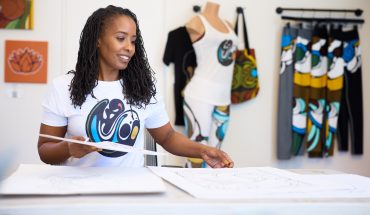Raleigh woman researches and recovers her family’s stolen art from World War II
Raleighite Alexandra Cardarelli didn’t know much about her grandmother’s history, other than the fact that she lived through the Holocaust. After seeing a TV ad about millions of stolen life insurance policies during that time, something sparked, and Cardarelli began to investigate if her grandparents had been impacted.
In the two decades since, Cardarelli has unearthed family treasure. Her great-grandparents, the Neumanns, of Vienna, Austria had most of their belongings confiscated by Nazis in 1938. Years ago, Cardarelli says her grandmother was told most of their things and valuables were burned. As it turns out: A piece of 17th century art, The Invaded Poultry House by Adriaen Van Utrecht and Jacob Jordaens, had survived.
To find the painting, Cardarelli spent hours, over years, researching in the National Archives. “I picked up where my great-grandmother had left off in the early 1960s. My family was reluctant, this (period in history) wasn’t talked about by Jews, but I just kept digging.”
With the help of the Monuments Men Foundation, which had recovered the art in the 1940s and 1950s, Cardarelli eventually tracked down the painting in the basement of a museum in Linz, Austria. This museum is home to the largest collection of stolen World War II art, and is also the site where Hitler planned to open a museum filled with stolen works. The painting was returned to the family in 2003, and underwent repairs and restoration at the National Gallery conservation center.
Cardarelli wanted to share the art with the public, but its 7-by-10-foot dimensions prove a challenge. “I worked for decades to find a museum to have the painting on loan. It’s so big, it was a problem for a lot of museums.” NCMA curator Dennis Weller had the perfect spot. The work is now on display in the Northern European Collection, where it will remain on loan through next year.
Cardarelli researches other families’ stolen objects from the Holocaust in her spare time, she says, and she hopes this success inspires others to research their own relatives. “It may be a needle in a haystack, but everyone needs to know that you can’t give up.” –Catherine Currin




